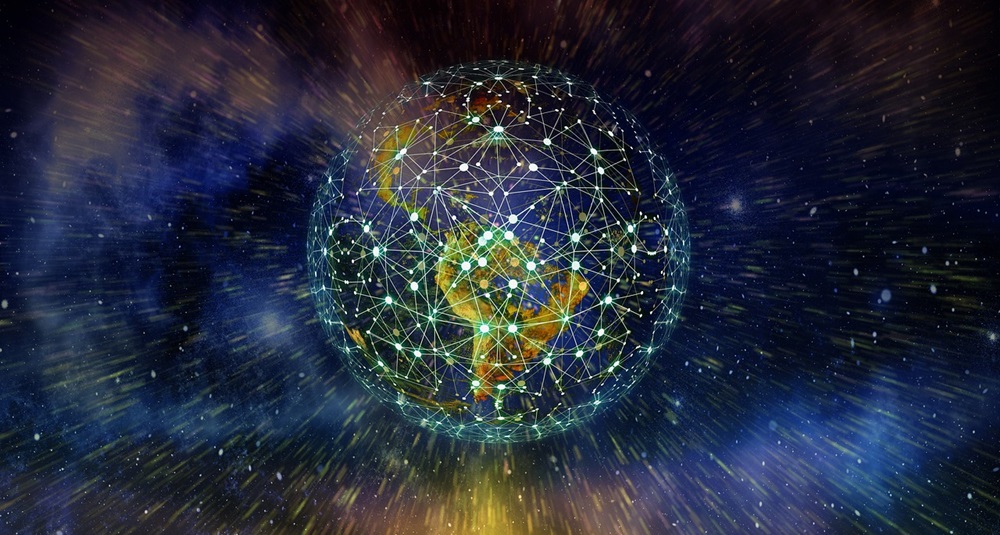Blockchain for Good

The blockchain is now ten years old, yet new. Since its introduction, the technology has transformed global economic markets by allowing participants to securely connect and manage transactions without the need for a central server or a “trusted” authority to validate interactions.
Social organizations— NGOs, social enterprises, government agencies, and even for-profit organizations promoting social benefits—are rapidly seen adopting blockchain in various humanitarian use cases. Theoretically, the blockchain can be applied in everything from monitoring the extent of human trafficking to restoring land records.
For example, in human trafficking, rescued people are re-entered without a precise identity which makes them exposed to being re-targeted by human traffickers. In improving success in clinical trials, blockchain can securely share the results of trials, making benchmarks more transparent.
We are already seeing initiatives from innovators and start-ups that are looking forward to implementing blockchain technology to solve real-world humanitarian and economic problems.
Here are a few examples:
- AgriLedger is using the technology to benefit small farmers in developing countries a fairer deal. This will provide many advantages for the farmers and suppliers including two main elements- efficiency and traceability.
- Provenance enables every physical product to be brought along with a digital “passport” that proves authenticity and origin. It restricts the selling of fraudulent goods, and the problem of “double spending” of certifications existing currently.
- The Safe Haven Project is developing a blockchain solution to help refugees to rebuild their lives and with a view to helping immigrants port their identities. Unfortunately, if he/she passed away, a registered member of the Trust Alliance Platform (notary) can reclaim the remaining share on the blockchain and pass the legacy down to his/her children or stakeholders.
- BitPesa is reducing the cost of cross-border payments to 1-3% in Africa to reduce the cost of entry for small enterprises to access liquidity and the global economy, compared to 10% by others. Moreover, it sends money in less than 24 hours.
All four of these start-ups are delivering new value – empowering economic and social change. There are many others, like BVrio, which helps in tracking timber in Brazil to fight illegal logging.
Covering the movement of "Blockchain for Good," Accenture examined approximately 30 blockchain use cases for solving social challenges by interviewing industry experts like implementation at Akshaya Patra, a meal provider serving over 1.6 million children in India. Implementing a new blockchain solution in 15 kitchens will enable targeting 30,240,000 additional meals every year. Accenture observed that social innovation organizations face four critical challenges in delivering their missions:
- Affordability: to keep services affordable, social organizations need to lower transaction costs and make use of economies of scale, ensuring proper resource management.
- Accountability: these organizations face the scrutiny of how they produce and use funds due to which transparent, accountable and compliance operations are becoming critical for their very survival.
- Reliability: many organizations face difficulties in assuring the continued flow of funds which leads to cross-subsidize their operations.
- Marketability: due to greater scrutiny of funds generated and finding the right talent, marketability and communications issues can slow down these organizations’ growth.
Above challenges can be overcome by a strategic shift with a focus on enhancing transparency, increasing efficiency, promoting sustainability and achieving scalability.
The Blockchain for Social Impact Coalition (BSIC), an initiative of ConsenSys, is a venture production studio based in Brooklyn, NY, that incubates, develops, and implements blockchain products and solutions that can address social and environmental challenges across the United Nation’s Sustainable Development Goals.
Building blocks, powered by World Food Programme (WFP) provided vouchers to Syrian refugees in Jordan to shop at the grocery store. They shop locally where their identity is verified through IrisGuard, a biometric authentication technology. At the store, they receive their food like every other paying customer. With the Building Blocks project, WFP aims to expand this project to 500,000 refugees in Jordan.
To get involved in “Blockchain for Good”, you can join several events like the one here: https://www.meetup.com/Blockchain-for-Good-NYC/
Blockchain for good can be used by organizations with an aim to improve the social funding model, issue social digital identities, assist refugees and homeless, and democratizing property ownership.
We’ll continue to follow the progress of these initiatives and report on others as the blockchain industry grows, enabling increasing support of social initiatives.
Edited by Ken Briodagh

